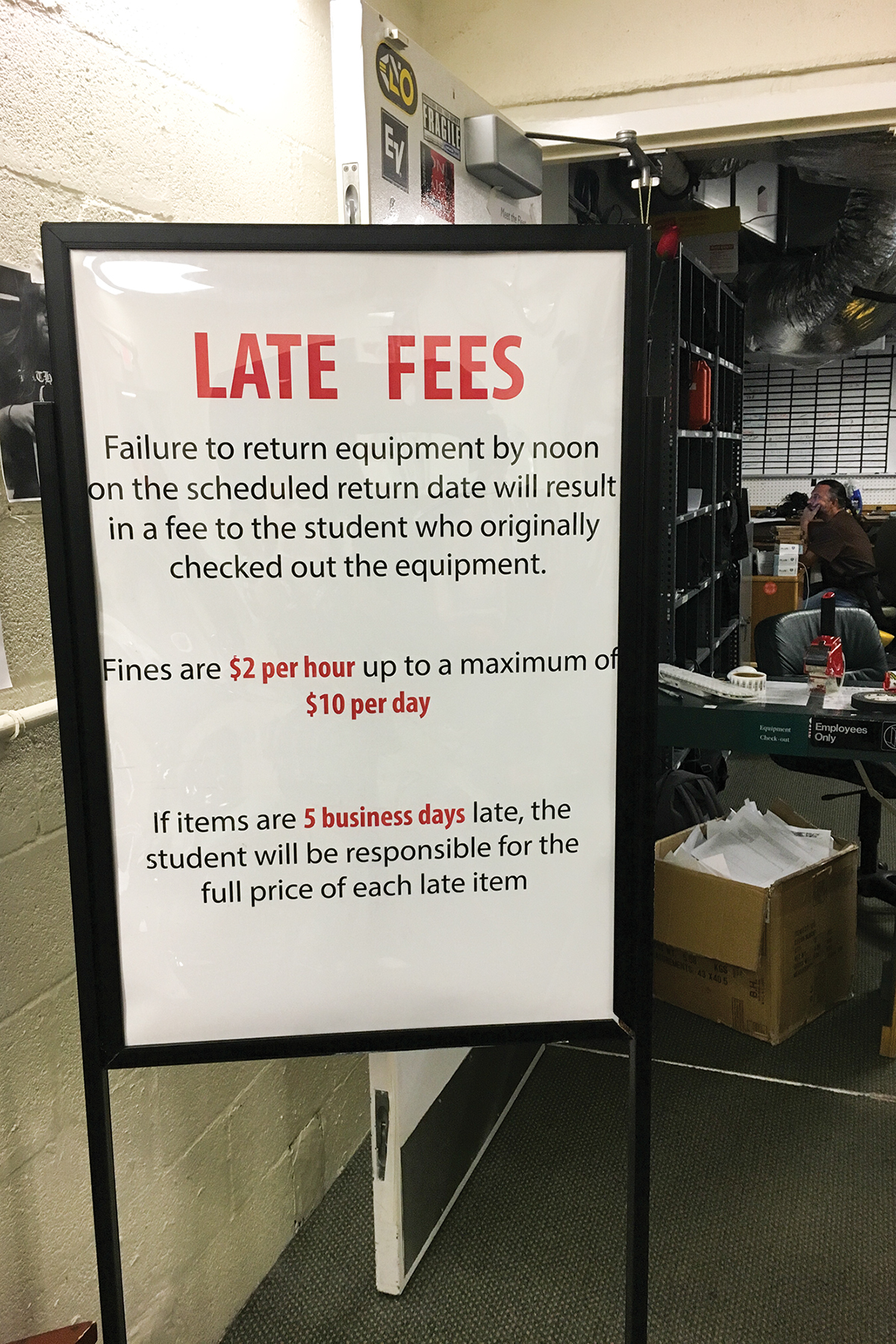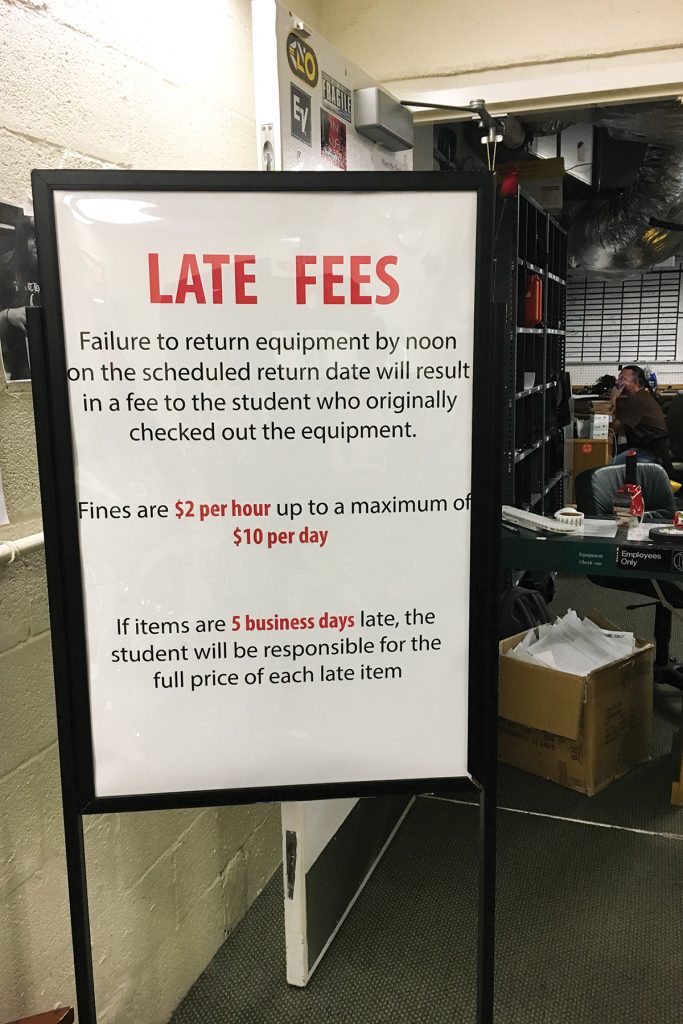

Students considering returning production equipment late to the School of Communication (SoC) might want to think twice from now on, as new fees were rolled out this year for late returns.
The SoC equipment room is in charge of providing two-day rentals of digital video, still photo and audio equipment to students. However, not all students have been adhering to the two-day rental rule. After students repeatedly returned equipment late, production technician Thomas Rodriguez proposed new policies to incentivize timely returns.
Any student who returns rented equipment any later than noon on the return date will be charged. If the student fails to return the equipment, he or she will receive a two-dollar fee per hour late, up to $10 per day.
If the student fails to return equipment five business days past the due date, he or she will be responsible for the full price of each item. This policy applies even if students have lost the equipment.
According to production equipment supervisor Tod Landess, the average student checks out approximately $5,000 worth of equipment.
Although the late fee policy is new this year, existing policies still apply. The three-strike policy that can ultimately lead to temporary deactivation of the student’s rental account is still in effect, even if students pay the late charges. Upon the first late return, a student will be let off with a warning. The second time it happens, the student and his or her professor will receive an email advisory. After a third time, the student’s account will be suspended.
One of the main reasons reinforcements could be added this year was because the equipment room will soon be using a software that makes it easier to fine students. The equipment room’s current program highlights a student’s name if the rental is late but does not allow an option to fine their account. Students will be able to pay the fines online through the SoC website.
According to Rodriguez, these measures are meant to enforce return times so other students, who reserved equipment ahead of time, are not left empty-handed.
“It’s unfair to the student that made the proper reservations. We would have to turn them away, it would happen quite often,” said Rodriguez.
Last year, senior Crystina Lugo-Beach was trying to check out equipment for a project due the following week, but another student had failed to return the equipment she reserved in advance. The situation was frustrating enough that she ended up calling the student with the equipment, Lugo-Beach said, but she only got an apology.
Lugo-Beach said the new rules will work because they scare people into being responsible. She is hopeful the measures will prevent circumstances like the one she was in.
“You may be messing up someone’s entire shoot they’ve schedule months in advance due to you being irresponsible,” Lugo-Beach said.
Emma Hanrahan, a senior majoring in broadcast journalism, was the first student to be fined and pay a late fee this semester. She said that although she didn’t like paying the two-dollar fee, she understood the need for some kind of enforcement.
“If everyone brought their equipment back a day late, or three hours late, then people in line wouldn’t be able to get their equipment, so I do understand,” Hanrahan said.
Landess said the guidelines were not created for financial gain but were instituted, in part, to be consistent across the university, as Richter Library maintains similar policies.
“The policy is not meant to be punitive or a new revenue stream,” Landess said.
Landess and Rodriguez both said the number of late returns has decreased significantly and no students have returned equipment late by more than five days so far.





